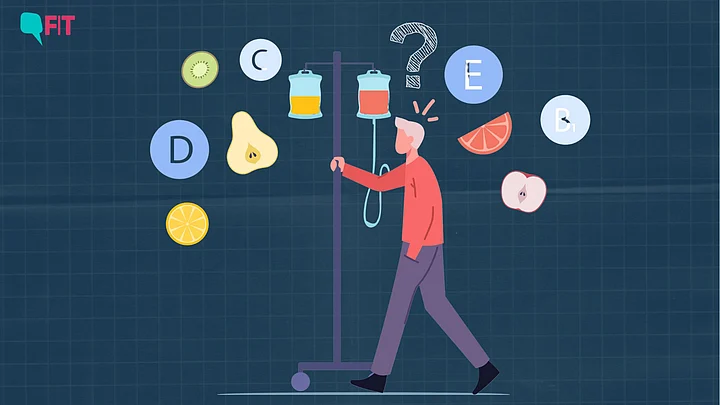What if you could have all healthy nutrients directly delivered to your bloodstream and feel rejuvenated within minutes?
Turns out, you can!
Popular celebrities like Adele, Miley Cyrus, and Rihanna have been swearing by IV vitamin therapy for years. Now, it has finally permeated into the world of us, 'regular folk', as well.
If you're prone to mindless scrolling on the internet, you might have come across posts and videos of social media influencers recording themselves with tubes sticking out of their arms, connected to IV drip setups at their homes or clinics dedicated to IV therapy.
The trend of healthy people getting intravenous vitamins through IV drips may be popular amongst many social groups, but does it actually work?
Why Do People Get IV Drip Therapy?
According to those who tout it, IV therapy can help you feel rejuvenated, detox your body, help you focus, help with weight loss, cure hangovers, and give you the much coveted 'wedding glow' depending on what nutrients your IV bag contains – a modern elixir by the sound of it.
The nutrients that are generally used for IV therapy are:
Vitamin B
Vitamin C
Vitamin B7
Magnesium
Calcium
Glutathione
The practice has become so popular that wellness clinics dedicated to just providing IV therapy called 'IV Drip Bars' have mushroomed in major cities over the last few years.
Tall Promises, But Does it Deliver?
Mainlining a cocktail of nutrients – vitamins, electrolytes, antioxidants – right into your veins, may sound like a great idea that can give you the desired results quicker than consuming fruits and veggies, drinking more water, exercising regularly, or even taking supplements orally. But does it actually boost your health?
"There is no evidence whatsoever," Dr Ajay Agarwal, Director, Internal Medicine, Fortis Hospital, Noida, tells FIT.
"This fad has just come up in the past few years, especially in the metro cities where people take vitamin C, antioxidants, and other nutrients through IV."Dr Ajay Agarwal, Director, Internal Medicine, Fortis Hospital, Noida
"IV drip is a medical procedure prescribed by doctors when a patient is dangerously low on certain vital nutrients. Recommending and offering it to a healthy person is nothing more than a cash grab," adds Dr Arun Gupta, Convener, Nutrition Advocacy in Public Interest (NAPI), India.
Getting an IV drip therapy can also be expensive. In India, depending on the kind of IV cocktail you get and where you get it done from, you can be charged anywhere between Rs 500 to Rs 20,000. The more luxury wellness centres out there may even charge more.
'Beware of the Health Risks'
Getting IV drips is not without its risks.
In fact, model Kendall Jenner was famously hospitalised following a reaction to the 'Myers cocktail' (high doses of B vitamins, vitamin C, and magnesium, and calcium) IV drip in 2018.
The most obvious risk of healthy people getting IV drips is that of hypervitaminosis.
"This happens when the vitamin levels in the body become abnormally high. That is not advisable," says Dr Agarwal.
Symptoms of hypervitaminosis can differ depending on which vitamin is in excess.
"We know vitamin D toxicity or hypervitaminosis D can lead to nausea, dehydration, constipation, and even kidney stones in extreme cases, but it's difficult to tell what is causing the symptoms when someone takes a cocktail of vitamins."Dr Arun Gupta, Convener, Nutrition Advocacy in Public Interest (NAPI), India
IV therapy is currently offered in wellness clinics and holistic healing centres. Not medical clinics and hospitals. While IV therapy centres claim that the procedure is done by board-certified aestheticians, it is still not a medically recommended procedure.
"It is not given with a prescription. I don't think any doctor will prescribe something like this to a healthy individual," says Dr Agarwal.
This is also a point of concern, according to the experts FIT spoke to.
"Who is monitoring these clinics? Are they being done by licenced practitioners? Who takes liability in case of adverse reactions? These are some questions that need to be answered," says Dr Gupta.

